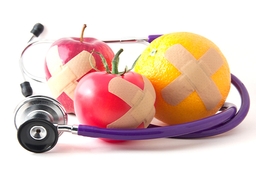8 Unhealthy "Healthy Foods"

Low-fat. Low-carb. Gluten-free. These phrases are typically found on products marketed as "healthy foods." But are these products truly healthy?
Many products claim to be "healthy food." However, if you carefully read the ingredients on the packaging, you will notice. This "healthy food" is less healthy than it is.
Take a note! Here are some examples.
1. Packages juice
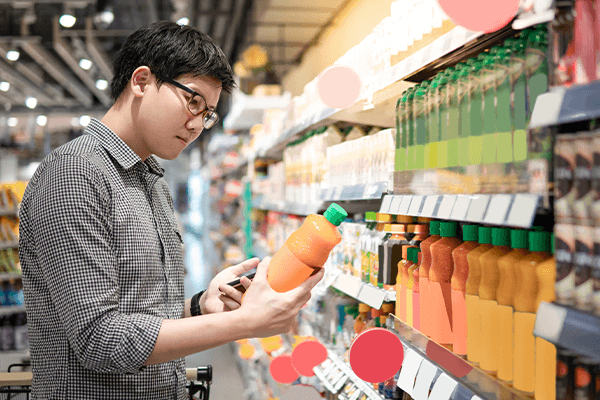
Packaged juice appears to be fresh, nutritious, and handy. Despite the ad's claim that there is no artificial sweetener, reading the ingredients carefully reveals that there is a lot of sugar. Sucrose, fructose corn syrup, concentrated fruit—you name it.
Could it get any worse? Yes, if the absence of fiber in packaged juice is a bad thing. Consuming sugar without fiber will undoubtedly raise our blood sugar levels. We also get hungry easily. Rather than feeling satisfied, we increase our intake.
Making your own juice is far healthier. We can adjust the amount of sugar and other ingredients like milk or honey. Most importantly, freshness is ensured.
2. Yogurt
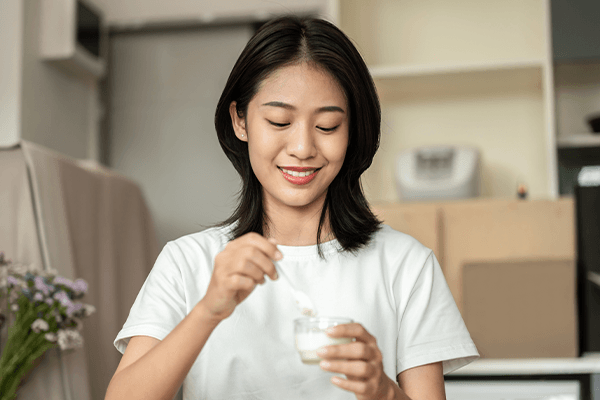
Yogurt is created when good bacteria ferment milk. These bacteria are known as Lactobacillus and Bifidobacteria. Probiotics found in yogurt cleanse and nourish our intestines.
Today, we can find a variety of yogurt flavors. The sugar content of 100 mL of flavored yogurt is 19 grams. Remember! Fat does not cause weight gain. Sugar does. It raises blood sugar if we consume too much of it.
Consuming plain yogurt is the best option. It only contains 4 grams of sugar per 100 mL. You can flavor it with strawberries, blueberries, or other fruits.
3. Vegetable chips
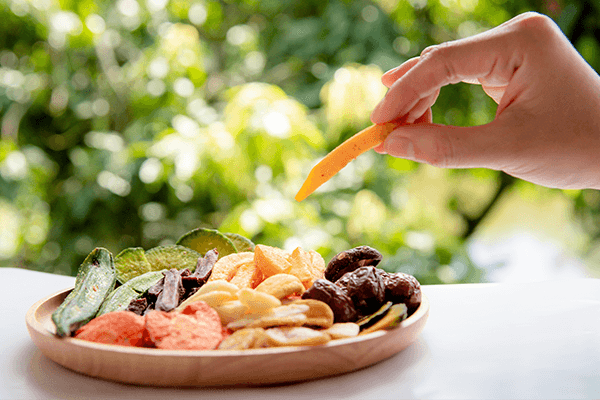
When we think about vegetables, we expect fiber, vitamins, and minerals. Sadly, vegetable chips have no fiber at all. What we will find is a large amount of sodium and oil!
No wonder. Chips are chips. It was fried in saturated-fat oil. Instead of giving us vitamins and antioxidants, the fried vegetables lose their benefits.
If you want to eat vegetable chips, make them yourself. Homemade chips will be much better. We recommend spinach, carrots, kale, or cassava leaves. Slice the vegetables into thin strips, sticks, or balls. Remember to use flour and oil sufficiently.
4. Snack bar

A snack bar is full of protein. It's easy to carry and a perfect choice to eat as body fuel after exercise!
Consuming protein is indeed good for our muscles. But too much protein is bad. Although high in protein, most of the ingredients in snack bars are artificial sweeteners and sodium.
Carefully read the snack bar ingredients. Change your preferences if you come across fructose, corn syrup, or other artificial sweeteners.
5. Isotonic drink
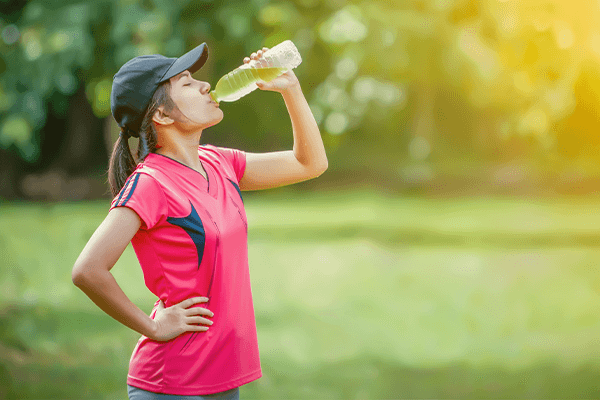
Water, sugar, carbohydrates, and electrolytes make up isotonic drinks. Athletes typically consume it to maintain and improve their performance.
Did you know that isotonic drinks contain artificial coloring? This artificial flavoring has the potential to cause cancer. It also contains a lot of sugar. A 250 mL bottle of isotonic drink contains 16 grams of sugar.
Drink plenty of water. The most effective way to avoid dehydration. Try coconut water if you want some flavor. It has a low sodium and carbohydrate content but a high potassium content.
6. Gluten-free products
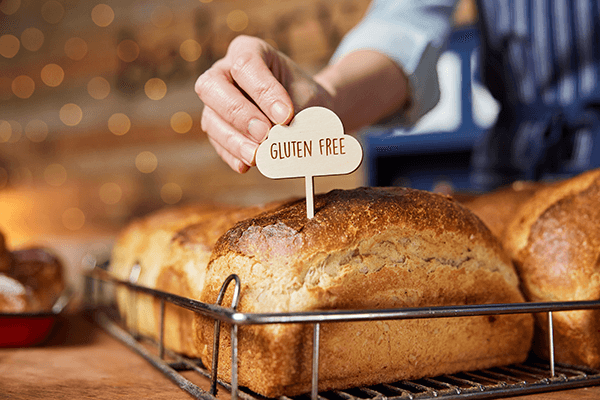
Gluten is a protein found in grains like wheat, rye, and barley. Some people believe that gluten causes weight gain. That is why a gluten-free product is making its way to town. Despite being gluten-free, it is high in sodium, sugar, and fat. Consuming gluten-free products raises cholesterol and blood pressure.
Internal medicine and obesity specialist Selvi Rajagopal believes that avoiding processed foods rather than gluten is preferable. Why? Gluten contains essential nutrients for our bodies, such as vitamin B and magnesium. Be cautious the next time you consume gluten-containing products. Consume as needed.
7. Diet soda

Many people drink diet soda instead of regular soda. Is it the best option? Artificial sweeteners in diet soda, such as saccharin, sucralose, and aspartame, cause weight gain, heart disease, stroke, and type 2 diabetes. Diet soda, according to Johns Hopkins School of Public Health researchers, can cause cancer.
You can instead make infused water. It's water with fruit or herbs in it. A cup of infused water (250 ml) has no calories, protein, fat, sugar, or carbs! We can use fruits such as lemon, pineapple, or lime. You can also add mint or basil for a fresher flavor.
8. Granola
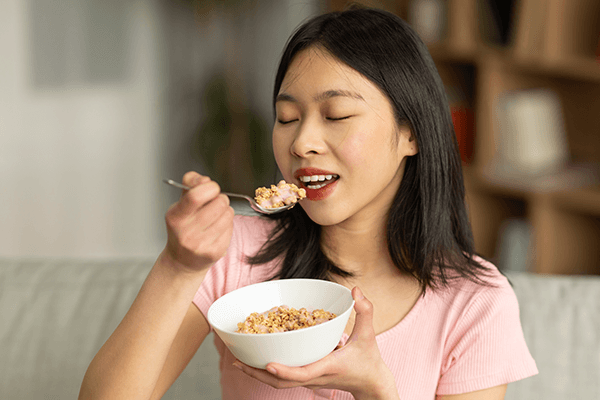
Granola is made from oatmeal, nuts, and seeds. Granola is a popular breakfast option for some people. It gives us more energy and keeps us fuller for a longer period of time.
The sugar content of 100 grams of granola is approximately 28 grams.
The Republic of Indonesia's Ministry of Health has set a daily sugar consumption limit of 50 grams. Can you imagine? We eat other foods besides granola on the same day, so how much sugar will we consume?
Don't worry! Replace the granola with apple slices or a small piece of dark chocolate. We can still enjoy tasty and nutritious treats!
From now on, consider the "healthy food" label. Please read the ingredients label carefully before you decide to buy and consume it.


